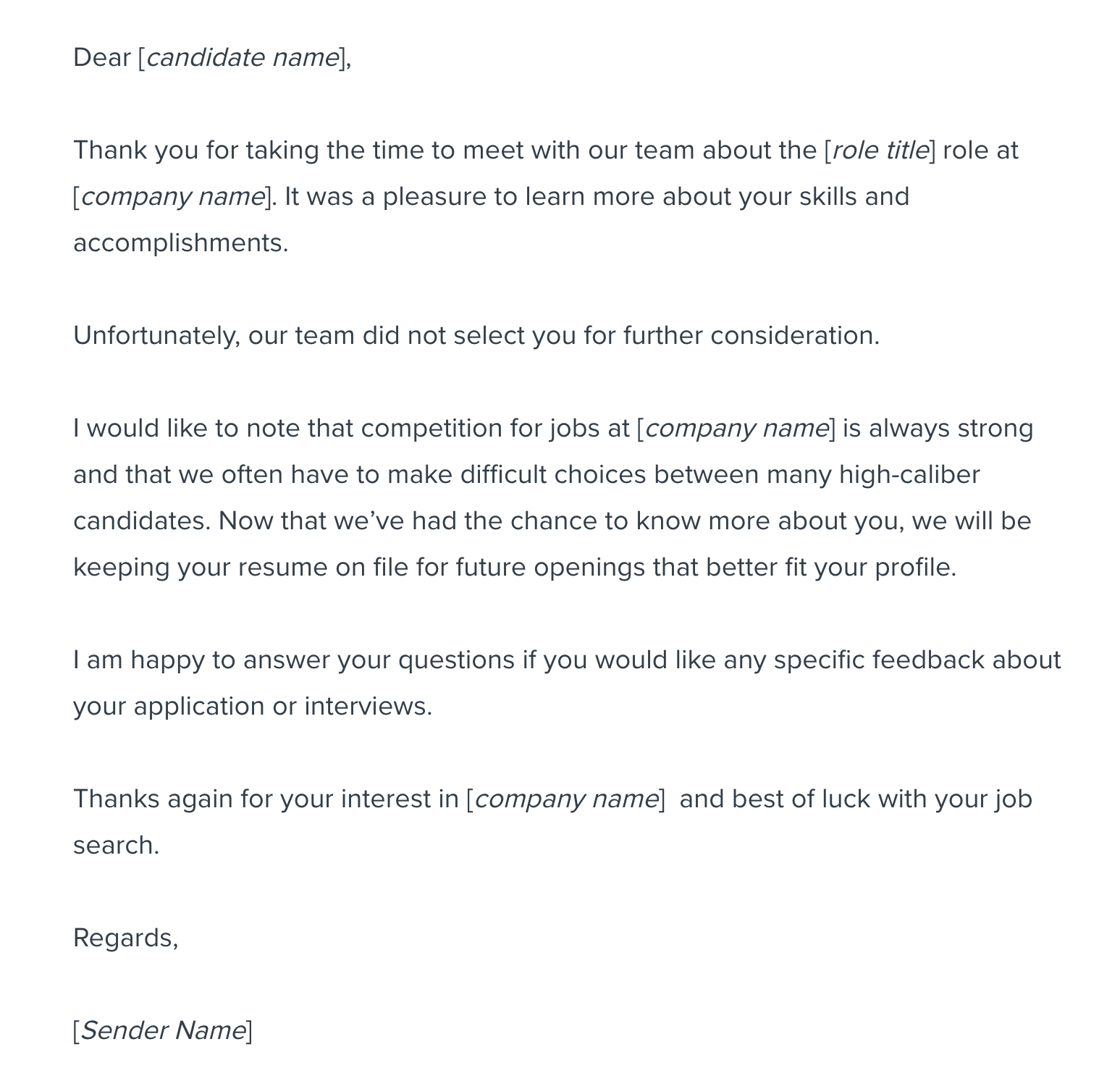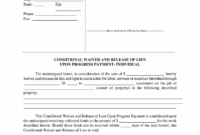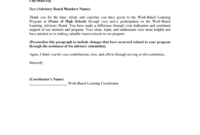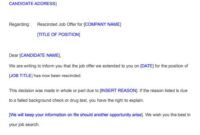Navigating the job market often means juggling multiple opportunities. You might find yourself in the fortunate position of receiving several job offers, or perhaps after a thorough interview process, you realize a particular role isn’t quite the right fit for your career aspirations or personal goals. Whatever the reason, it is crucial to handle these situations with grace and professionalism, maintaining positive relationships within your industry.
Declining a job offer, even if it feels daunting, is an important step in managing your career trajectory. It demonstrates respect for the hiring team’s time and effort, and leaves a lasting positive impression that can benefit you in the long run. Knowing how to politely and effectively communicate your decision is a skill that can set you apart, making a regret letter template after interview an invaluable tool in your professional toolkit.
The Art of Declining a Job Offer Gracefully
When you decide not to pursue a job opportunity further, whether before or after an official offer, the way you communicate this decision speaks volumes about your professionalism. It is not just about saying no; it is about doing so in a manner that preserves your reputation and keeps doors open for future interactions. Recruiters and hiring managers often move between companies, and burning bridges can have unforeseen consequences down the line. A thoughtful decline shows you value their process and time, even if the outcome isn’t an acceptance.
Think about the effort the hiring team put into reviewing your application, scheduling interviews, and possibly even extending an offer. Acknowledging this effort and expressing gratitude is fundamental. Your regret letter should convey your appreciation for the opportunity and the insights you gained, even if you are moving in a different direction. This gesture of professionalism is often remembered, reflecting positively on your character and work ethic.
There are many reasons why you might need to send a regret letter. Perhaps you accepted another offer that better aligns with your long-term goals, or you decided the company culture or day-to-day responsibilities of the role were not the best fit after all. It could also be due to personal circumstances that have shifted your priorities. Regardless of the specifics, a clear, concise, and courteous communication is always the best approach, avoiding any ambiguity or confusion.

By taking the time to craft a polite decline, you are actively fostering a positive professional image. This proactive approach not only wraps up the current interaction on good terms but also reinforces your commitment to ethical professional conduct. It is a small but significant act that contributes to your overall professional brand and networking capabilities.
What to Include in Your Regret Letter
- Begin by expressing sincere gratitude for the job offer and the time the team invested in interviewing you.
- Clearly and unambiguously state that you are declining the offer.
- Briefly and professionally explain your reason for declining, if you feel comfortable doing so. This can be as simple as stating you accepted another offer that is a better fit.
- Offer best wishes for their continued search and the success of their team.
- Maintain a consistently polite and professional tone throughout the letter.
Your Go-To Regret Letter Template After Interview
Having a reliable framework for communicating your decision not to accept a job offer can alleviate much of the stress from the situation. A regret letter template after interview ensures that you include all necessary elements while maintaining a professional and courteous tone. This template serves as a versatile guide, ready to be customized for your specific circumstances, ensuring every decline you send is handled with the utmost care and respect.
The beauty of using a template lies in its efficiency and effectiveness. It helps you articulate your decision clearly without fumbling for words, allowing you to focus on tailoring the message to the particular role and company. Remember, while the core message remains consistent, personalizing details like the hiring manager’s name, the job title, and specific aspects of the interview process makes the letter feel genuine and thoughtful.
Here is a foundational template you can adapt:
Dear Mr./Ms./Mx. [Hiring Manager Name],
Thank you so much for offering me the position of [Job Title] at [Company Name]. I truly appreciate you taking the time to interview me and for providing such a comprehensive overview of the role and the team. I also want to express my gratitude for the generous offer extended.
After careful consideration, I have decided to decline the offer at this time. This was not an easy decision, as I was very impressed with [Company Name] and enjoyed learning about [specific aspect of the role or company discussed]. However, I have accepted another opportunity that I believe aligns more closely with my current career goals and trajectory.
I wish you and [Company Name] all the best in finding a suitable candidate for this role. I genuinely appreciate your understanding and hope our paths may cross again in the future.
Sincerely,
[Your Name]
When you use this template, remember to make it your own. Replace the bracketed information with specific details. If you prefer not to disclose that you have accepted another offer, you can simply state that you have decided to pursue a different path that aligns more with your career objectives at this time. The key is to be clear, appreciative, and professional without feeling the need to over-explain.
This prepared template allows you to deliver your message confidently and politely, reinforcing your professional image. It is a small but powerful tool that ensures your career transitions are always handled with the utmost grace, leaving a positive and lasting impression on potential employers and industry contacts alike.
By utilizing a carefully constructed communication for declining a job offer, you not only conclude the hiring process respectfully but also safeguard your professional reputation. This thoughtful approach ensures that you always leave a positive impression, regardless of the outcome, fostering goodwill and potentially opening doors for future collaborations or opportunities within your network. Embracing such professionalism in every interaction demonstrates your integrity and foresight, proving to be an invaluable asset in your career journey.



